Nepal is at a political crossroad. The new Gen Z population of the country has led a series of student organized protests, which have made the giver-in and the all time leader of the country Prime Minister KP Sharma Oli retired under intense pressure and challenges to his rule on failures in governance, allegations of corruption and lack of public trust. In a twist and yet a breakthrough, the campaigners resisting have resorted to a leader who has earned a reputation of integrity and independence june Nepal: Sushila Karki-editor the first woman Chief Justice of Nepal.
Karki at 73 has become the nomination of the Gen Z movement to run and bring frontier government, alongside other nominations, which have been suggestive, among others, Kathmandu mayor Balendra Shah and former electricity board chief Kulman Ghising. Nevertheless, her image of zero-tolerance to corrupt practices and an immense level of legal knowledge has turned into her advantages in this political transition.
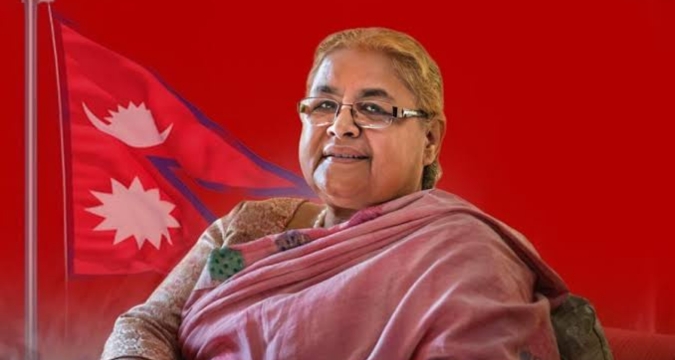
Of particular interest to India and South Asia is that Karki is a personal and academic associate of India and her dignified approach to Indo-Nepal relations. We should now have a closer look at what Sushila Karki is, why Gen Z desires her as the interim leader, and what is the role of her connection to India in the existing geopolitical scenario.
The Political Crisis in Nepal: Why Gen Z Took Charge
Nepal has not been associated with lack of political turmoil. The successive governments have found it hard to maintain stability ever since the monarchy was abolished in 2008 and the current systems have assumed a federal democratic republic. The youth in the country has been left unsatisfied by frequent change of leadership, corruption and economic stagnation.
The most recent one came in the beginning of September 2025, when mass demonstrations by students and youth-led organizations rose against the Oli administration. The protests escalated when allegations of mismanagement and suspect backroom deals emerged. Oli stepped down two days after nationwide protests, plunging the country into a vacuum of leadership.
It was the Nepal Army that came in to enforce curfew and order but the call of protestors was unmistakably clear: they wanted new leadership to build it on moral uprightness, not political gain. It was in this where the name of Sushila Karki came again as a unifying candidate, an epitome of justice and fairness.
Who is Sushila Karki?
1. Trailblazer in Nepal’s Judiciary
In July, 2016, Sushila Karki became the first female Chief Justice of Nepal and it is a historical milestone amid a traditionally male-controlled judiciary. Until June 2017, she served and achieved a reputation of having a tough anti-corruption stand.
Under her leadership, she enhanced judicial independence, issued some historic verdicts, and put a strong message that Nepal did not have its own way to bend love by the legal system. Her rule was short lived but full of controversy and admiration.
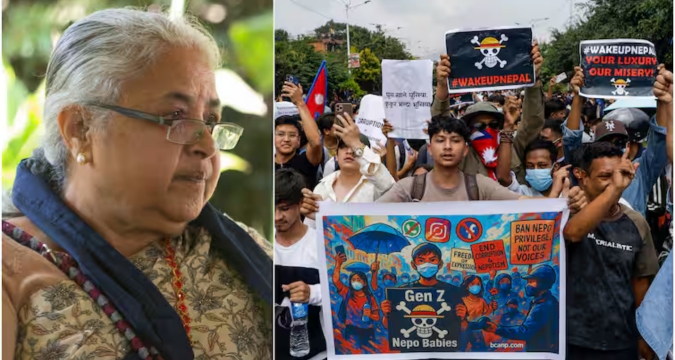
She was temporarily suspended in April 2017, after being impeached by the Nepali ruling party Nepali Congress and CPN (Maoist Centre). These were the accusations that she issued a partial sentence disqualifying the then-maintenance of the anti-corruption commission on the grounds of medical ineligibility. To many observers though, this was political payback to her unyielding nature.
She did not have an easy task which explains why she left a lasting legacy as a symbol of judicial courage.
2. Early Life and Education
Karki was born on June 7, 1952 into a family of seven children in Biratnagar. Nepal and India were of great influence on her scholastic path. She went further with her education in India after finishing her BA student at the Mahendra Morang Campus in 1972.
In 1975, she completed her MA in Political Science at Banaras Hindu University (BHU), a reputable institution in which thousands of Nepalese students have over time studied. She then went back to Nepal and graduated with a bachelor’s degree in law in the year 1978 in Tribhuvan University.
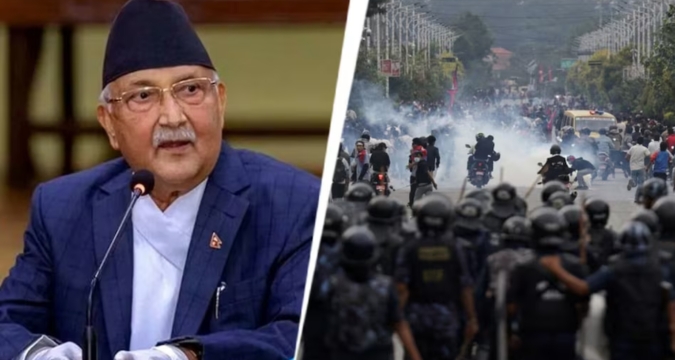
This scholastic grounding coupled with her keen legal mind would help her to have an illustrious career in the judiciary.
3. Legal Career and Rise in the Judiciary
Karki joined the law field in 1979. She was made a senior advocate in 2007 after decades of hard work. Only two years later in January 2009 she was elevated as an ad-hoc judge of the Supreme Court, before being made a permanent judge in 2010.
Resilience characterised her career path. Having not been born into the circle of the traditional political elite, she had to find her way up in this world on her own merit. Before she could get to the Chief Justice office, she already had a reputation that was fearlessly independent.
Why Gen Z Wants Her as Interim Prime Minister
The Gen Z demonstrators, who were part of the recent political issues in Nepal are disappointed regarding these political leaders. To them, Karki is a symbol of integrity and accountability, which they consider lacking in the mainstream politics of Nepal.
- Emblem of Clean Government: First woman Chief Justice, she observed judicial independence and battle against corruption. Her previous history makes sense to young people who seek systems change.
- Non Political Personality: Unlike other career politicians, Karki does not carry political baggage. It is the reason why she would be a perfect candidate to run a provisional government until new elections are possible.
- Generational Support: Nepal Gen Z activists find in her someone who may circumvent the dynamics between the outdated establishment and the hopes of Nepali young people.
- Crisis Management: As the protests and unrest are going on, the call to the credible respected figure is dire. Karki fits the criteria better than the majority of what he is considering.
India Connection: Education, Memories, and Cultural Bonds
The love of attachment to India is one of the most interesting phenomena of the life of Sushila Karki.
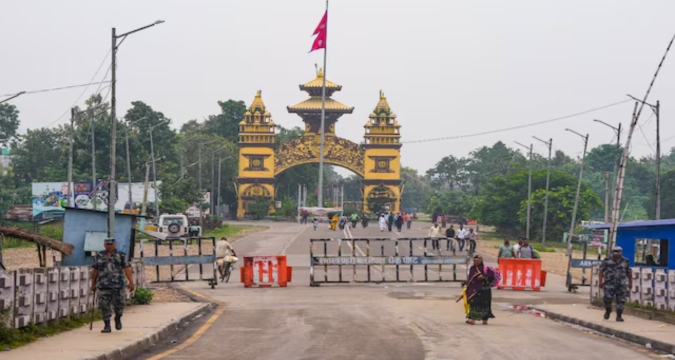
- She enrolled at the Banaras Hindu University (BHU), where she graduated in 1975 with a Master of degree in the field of Political Science. This was a transformational age both academically and also culturally.
- Her memories of living around the Ganga river bring out sweet memories as she becomes a part of the cultural and scholastic aspects of life in Varanasi. When asked in a recent interview, she replied: I do remember my teachers, my friends. I have not forgotten about Ganga: the river. Next to the Ganga, there was a hostel. And in the summer nights on the terrace we would sleep.
- These introspective developments illuminate the human connection between India and Nepal, which, in a lot of cases, transcends beyond the sans attitudes.
What She Said About India and PM Modi
Karki, saying good things about India and Prime Minister Narendra Modi, was interviewed after her name had been floated as interim PM.
On Modi: “I greet Modi ji. Modi ji: I am impressed with him.
- The India-Nepal relations: There is a good and cordial relationship between the people of Nepal and the people of India. A lot of our family and friends… We have so much goodwill, love. We take them as our brothers and sisters.
- On challenges: She has recognised that when utensils are placed close together in the kitchen, they always make some noise indicating that friction is normal in close relationships but never weaken it.
- Such a subtle perspective demonstrates realism and hope in mutual relations.
Implications for India-Nepal Relations
The appointment of Sushila Karki as interim prime minister may be a stabilising moment in the affairs between India and Nepal.
- Trust/Cultural Familiarity: Karki has had an Indian education and cultural exposure that provide her with an understanding opinion about India. This would ease the transition in a transition that was quite political.
- South Asian stability: India will be immensely monitoring the case. The key to the security of the region is a stable Nepal since the country has an ideal location between India and China.
- Youth-Centric Diplomacy: It is possible that this way will be adjusted again to Gen Z type of protesters: India can also redefine its policy by becoming more proximate to the youth ambitions of Nepal.
- Defense of Indians in Nepal: This has already been made clear by Karki that the Indians in Nepal will not be attacked and that justice will be done to the families of the people who are killed in the demonstrations.
Challenges Ahead
Though the assistance of the Gen Z revolution has put Karki in the middle management of Nepal, there are still some issues:
- The Transition Without Elections: A transition is an interim government situation where interests have to be juggled without elections.
- Role of the Army: Since the Nepal Army is already an active participant in the law and order, it would be essential to keep the civilian supremacy.
- Controlling Protest Expectations: The youth movement can have fast expectations on reforms, which might not be easy to achieve as a caretaker.
- Foreign Relations: The decision to maintain the relationship with both India and China in one of the most unstable periods will be a challenge to her diplomatic virtues.
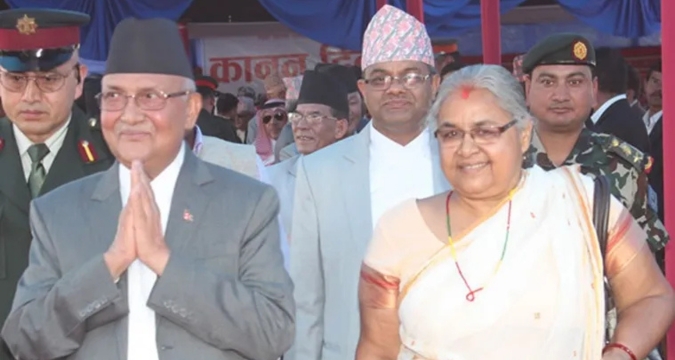
Conclusion
The abrupt surfacing of Sushila Karki as a Gen Z candidate to become the interim prime minister of Nepal is both historic and symbolic. She is an embodiment of integrity, justice and generational responsibility of governing. Her level of familiarity with India, such as education and cultural ties, is another layer of potential weight of her (possibly) future leadership, and particularly in the framework of South Asian geopolitics.
It is yet unclear if she can carry the legacy of her judicial career into a future as a political leader, but one thing is indeed very true: her appointment is the expression of a young, polluted Nepal and the need to open things up. In the case of India, this politically detached Kathmandu might serve her well in terms of people to people goodwill.
The world will be keen on how a former judge, whose memories of the Ganga are still in her heart, can skip through the stormy waters of politics, as Nepal prepares its next chapter.








